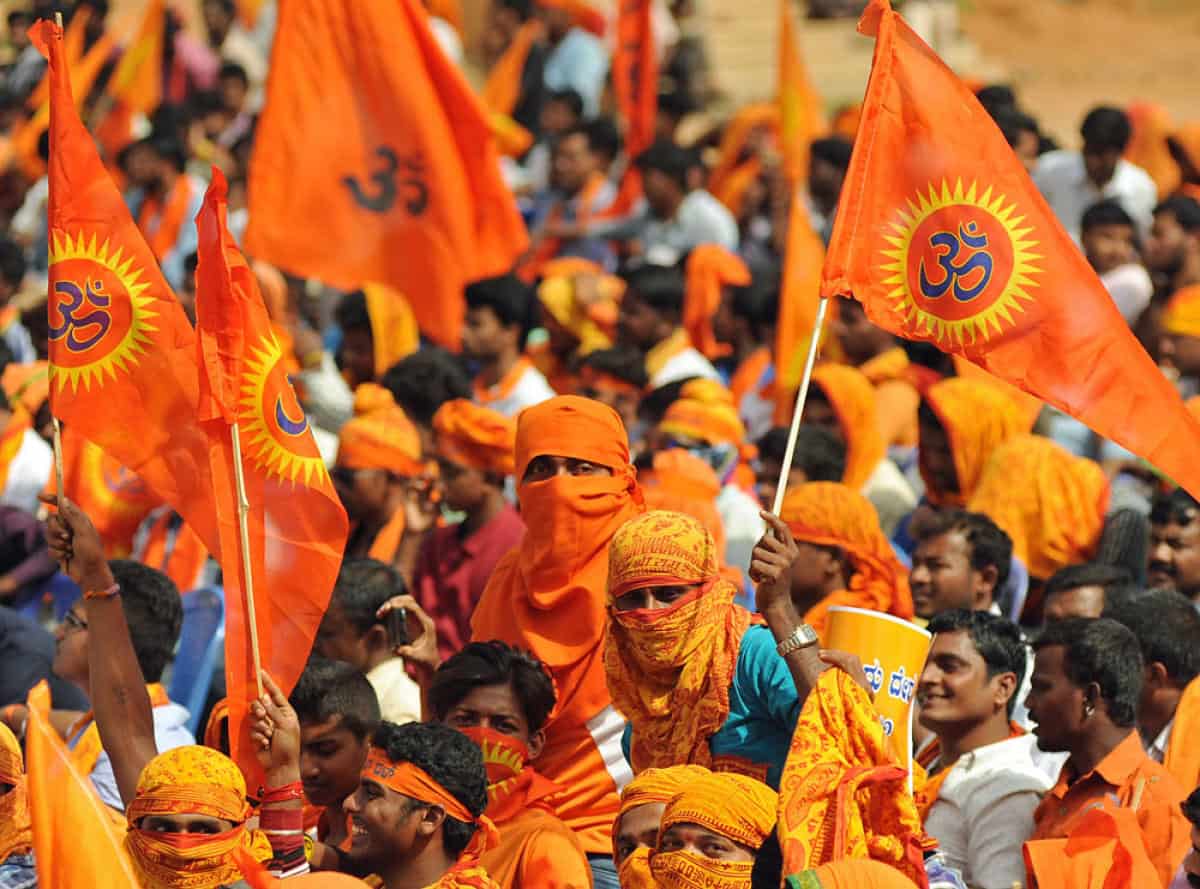
New Delhi: Vishwa Hindu Parishad (VHP), on Thursday, December 26, announced a nationwide movement to release temple administration control from governments of various states. The campaign is to start from Vijayawada in Andhra Pradesh, a statement by the right-wing Hindu organisation said.
VHP organizing general secretary Milind Parande, while addressing a press conference in New Delhi accused the state governments of being ‘discriminatory towards the Hindu society’ while asking them to ‘detach themselves’ from the control, management and daily works of temples in the country.
The movement, according to the VHP, would be called ‘Haindava Shankhaaraavam’. “The state governments controlling the temples violates Articles 12, 25 and 26 of the Constitution of India,” said the VHP in its statements, comparing it with mosques and churches, which are not controlled by the states.
The Hindutva organisation is set to resist it legally, with a ‘think tank’ constituting a set of 6 lawyers, the statement added.
The Hindutva organisation aims to remove governmental bodies and representatives from temple administrations, with a Dharmic Council at state levels, comprising Dharmacharyas, retired judges and retired government officials, which would elect district-level representatives, who would, in turn, elect local temple governing bodies.
According to the statement, last week, a VHP delegation met with Andhra Pradesh chief minister Chandrababu Naidu and handed over a draft of the proposed law and their new movement.
The VHP has also submitted a memorandum to the Governors of all states to push their demands, on September 30.
Among the VHP’s list of demands were the removal of all non-Hindu temple employees, the exclusion of politicians from Hindu councils and boards, and the restriction of temple shops to Hindu owners within and outside the premises.
VHP also demanded that “the income of temples should be spent only on the propagation of Hindu
Dharma, service to the society and related issues, never on government works.”
The organisation’s move to continue or to start a new wave of temple politics comes when the Rashtriya Swayam Sevak Sangh (RSS) chief Mohan Bhagwat openly said that following the construction of the Ayodhya Ram Temple, Hindutva leaders are bringing up similar disputes to make their names bigger and gain political power riding on that wave of polarization.
The Supreme Court too, had recently put a halt on legal proceedings over the allegations of finding temples beneath historical mosques in the country.

